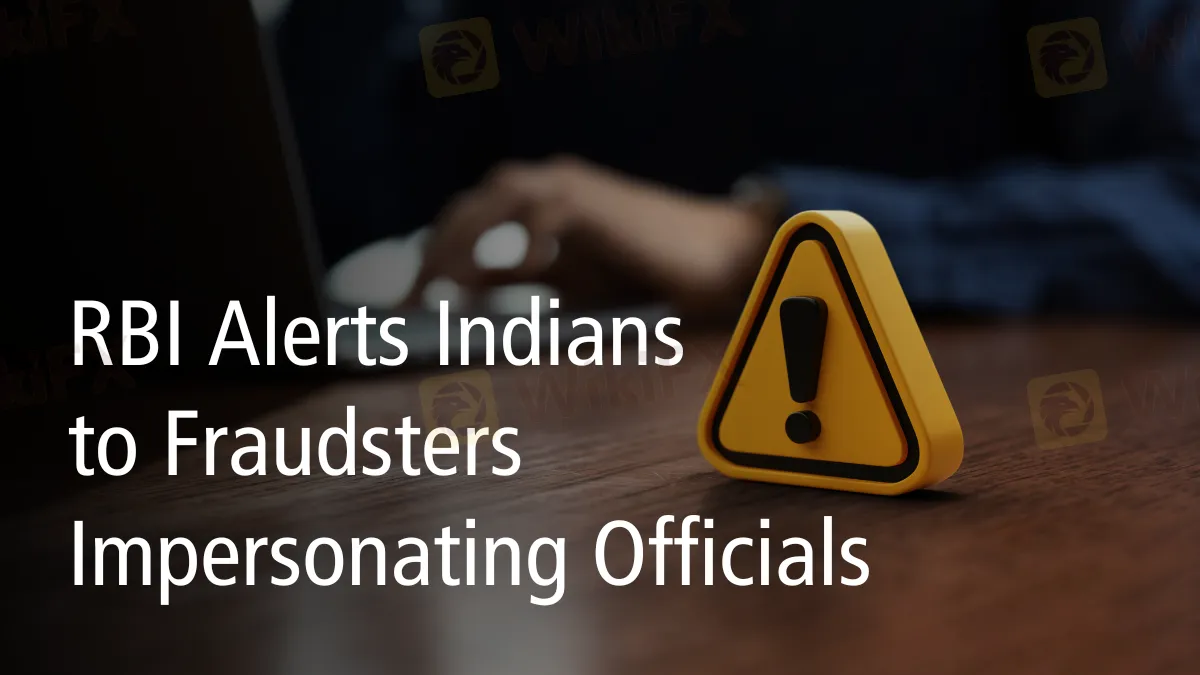RBI Alerts Indians to Fraudsters Impersonating Officials
Abstract:RBI warns Indians about fraudsters posing as officials, using fake documents and intimidating tactics. Stay alert to avoid falling victim to these scams.

The Reserve Bank of India (RBI) has issued a severe warning to the public over the rising threat of fraudsters impersonating its personnel. These fraudsters utilize sophisticated strategies to trick unwary people and organizations, sometimes impersonating RBI workers or government officials to obtain money under false pretenses.
The RBI has discovered that these fraudsters employ forged RBI letterheads, email addresses, and other official-looking papers to persuade their victims of their credibility. Their basic strategy is approaching small and medium-sized firms by pretending to provide lucrative government contracts or initiatives. To guarantee these phony transactions, the scammers want a “security deposit,” which they promise would result in big payouts in the future.
In addition to attacking companies, these imposters entice people with promises of lottery winners, cash transfers, international remittances, and government programs. The RBI has said that it does not send emails or communications involving the distribution of lottery money or any similar promotions. The public is advised to be wary of any message that promises quick money or asks for personal or financial information.

The RBI has also highlighted a particularly concerning trend: fraudsters use threatening techniques to compel their victims. These crooks often impersonate RBI officials and call victims, threatening to shut down or deactivate their bank accounts if they do not meet their demands. The requests might include providing personal information, account information, or one-time passwords (OTPs). In certain circumstances, users are forced to install unapproved and unverified programs via links given by scammers.
The RBI has also advised against cases in which fraudsters impersonate government officials or RBI personnel, accusing victims of participation in illicit activities such as money laundering, counterfeiting, or suspicious financial transactions. These threats are intended to cause fear and drive victims to comply.
Furthermore, some fraudsters have been caught claiming accreditation or registration with the RBI to market unlicensed digital lending applications and other questionable financial services. The RBI has urged the public not to trust any websites or applications claiming to be RBI-accredited without sufficient verification.
In its statement, the RBI strongly advised the people to be watchful and not fall victim to these fraudulent schemes. The central bank continues to monitor these operations and is dedicated to safeguarding the people from financial fraud.
Stay protected! For more on this and other financial safety updates, visit the WikiFX News page for the latest insights.

Read more

Top 10 Trading Indicators Every Forex Trader Should Know
Master the top 10 Forex trading indicators to analyze real-time Forex quotes, trends, and market signals. Learn strategies to boost accuracy and avoid mistakes.

Malaysian Influencer Detained in Taiwan Over Alleged Role in Fraud Scheme
Malaysian influencer Hu Chang Mun, widely known as Ady Hu, has been detained in Taiwan for his alleged involvement in a fraudulent operation. The 31-year-old, who was reported missing earlier in December, was located by Taiwanese authorities after suspicions arose regarding his activities.

WikiEXPO Global Expert Interview: Simone Martin—— Exploring Financial Regulation Change
In the midst of financial innovation and regulation, WikiGlobal, the organizer of WikiEXPO, stays abreast of industry trends and conducts a series of insightful and distinctive interviews on pivotal topics. We are delighted to have the privilege of inviting Simone Martin for an in-depth conversation this time.

MultiBank Group Wins Big at Traders Fair Hong Kong 2024
Discover how MultiBank Group, a global leader in financial derivatives, secured three prestigious awards at Traders Fair Hong Kong 2024, highlighting its innovative trading solutions and industry excellence.
WikiFX Broker
Latest News
Volkswagen agrees deal to avoid Germany plant closures
Geopolitical Events: What They Are & Their Impact?
Top 10 Trading Indicators Every Forex Trader Should Know
TradingView Launches Liquidity Analysis Tool DEX Screener
MultiBank Group Wins Big at Traders Fair Hong Kong 2024
WikiEXPO Global Expert Interview: Simone Martin—— Exploring Financial Regulation Change
'Young investors make investment decisions impulsively to keep up with current trends' FCA Reveals
Why Do You Feel Scared During Trade Execution?
CySEC Settles Compliance Case with Fxview Operator Charlgate Ltd
Malaysian Influencer Detained in Taiwan Over Alleged Role in Fraud Scheme
Rate Calc
